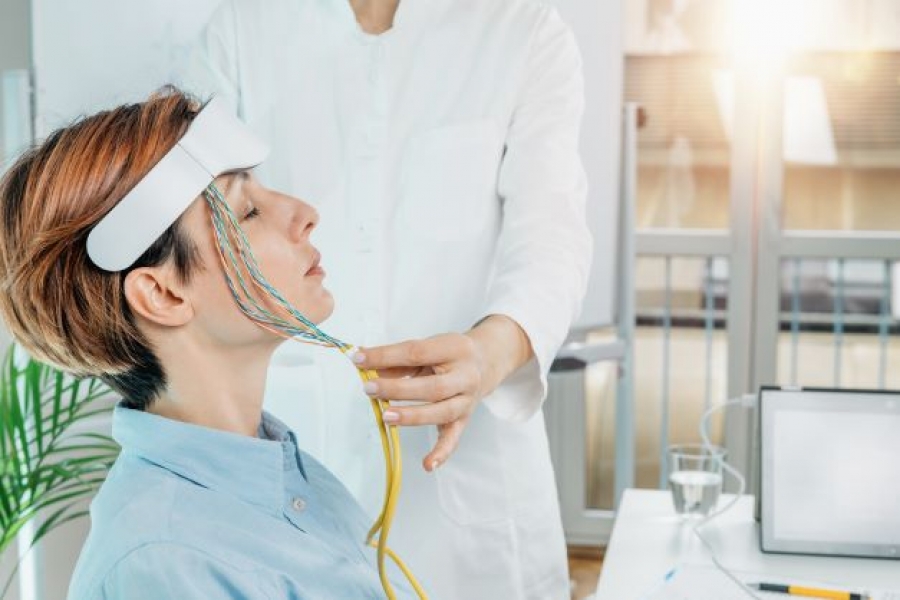EEG biofeedback, otherwise called electroencephalograph biofeedback or neurofeedback, is a type of non-invasive, drug-free therapy that measures brain wave activity. During a neurofeedback treatment session, electrical sensors are placed on the scalp to measure and transmit information regarding brain wave frequencies. This real-time feedback helps you learn about your cognitive behaviors and how to eventually change them for the better. By adjusting those patterns, you can better relax, focus, or respond to stressors. If you want to learn about EEG biofeedback in Denver, you’ve come to the right place.
Today we’re breaking down everything you need to know about EEG biofeedback therapy.
How Does Biofeedback Work?
Biofeedback is a mind/body training technique that helps people gain better control over their bodies and minds. Through this training, people learn how to recognize the physical signs of stress and anxiety and proactively take steps to improve those symptoms.
To be clear, EEG biofeedback is a type of biofeedback therapy that focuses on the brain. While general biofeedback therapy is geared toward bodily functions and efficiencies instead.
Some of the functions people can learn to control through biofeedback therapy include:
- Blood pressure
- Blood flow
- Heart rate
- Muscle tension
- Pain perception
- And other physical factors
All these physiological sensations are measured using body sensors and biofeedback equipment. This data is presented in real-time to your trained clinician who then communicates the information to the user so they can then learn how to control those aspects of themselves.
Conditions Related to EEG Biofeedback
Research on the effectiveness of EEG biofeedback training has indicated that this technique may be useful for numerous conditions. For instance, individuals who successfully completed EEG biofeedback training have experienced health benefits for a variety of conditions such as headaches, migraines, fibromyalgia, insomnia, stress, and high blood pressure.
Biofeedback For the Brain
EEG biofeedback, also known as neurofeedback, is used to help patients better understand their brainwave patterns and optimize their mental health. This therapy can help with conditions like insomnia, panic attacks, anxiety disorders, and depression
What Is Neurofeedback?
As mentioned earlier, neurofeedback therapy is a type of brain-based training. It is a subset of biofeedback therapy and may use many of the same techniques as biofeedback. The main difference is that EEG biofeedback focuses on improving mental health and the function of the brain.
Both of these treatments are non-invasive and drug-free. Neurofeedback sessions tend to last for roughly one hour. During treatment, your clinician will guide you through reward-based scenarios to support your mental health goals. When your brain waves are within optimal ranges, you’ll receive a reward (usually a song, movie, or video game will play). And when your brain waves fall out of optimal ranges, that reward will be taken away.
Over time, your cognitive behaviors and patterns will change. Most patients experience relief and positive results within eight to 10 sessions, while others may need 20.
When it comes to the decision of whether you need biofeedback therapy or EEG biofeedback (neurofeedback), it ultimately boils down to what your needs are.
Learn More about EEG Biofeedback in Denver at Braincode centers
If you’re interested in learning more about neurofeedback in Denver, reach out to us at Braincode Centers. We offer EEG biofeedback in Denver and Dallas so you can take better control over your mental health.
Schedule a consultation to learn how we can help train your brain so you can live your happiest, healthiest life.

